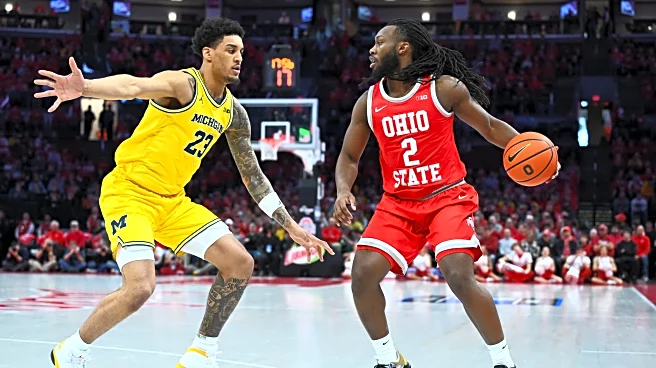What's Happening?
Clarivate has released the 2025 update to the Journal Citation Reports, providing a comprehensive overview of leading academic journals in chemistry. This update marks a significant change as it excludes citations to and from retracted content when calculating the journal impact factor (JIF). The JIF, while controversial, is a measure of a journal's quality and trustworthiness. Clarivate advises against considering JIF in isolation, recommending additional metrics such as the Journal Citation Indicator (JCI) and JIF percentile for a more nuanced evaluation. The JCI normalizes metrics across different research fields, while the JIF percentile allows for meaningful comparisons within categories. The report lists top journals across various chemistry fields, including applied, analytical, organic, inorganic, physical, electrochemistry, multidisciplinary, medicinal, biochemical research methods, and biochemistry and molecular biology.
Why It's Important?
The exclusion of retracted content from JIF calculations is a critical step towards enhancing the reliability and integrity of scientific literature. This change could influence how researchers, institutions, and funding bodies assess the quality of journals and the research published within them. By providing additional metrics like JCI and JIF percentile, Clarivate offers a more comprehensive tool for evaluating journal performance, which could impact funding decisions, academic promotions, and research directions. This shift may encourage journals to maintain higher standards of publication and reduce the incidence of retractions, ultimately benefiting the scientific community and public trust in research.
What's Next?
As the scientific community adapts to these changes, journals may revise their editorial policies to align with the new standards set by Clarivate. Researchers might also adjust their publication strategies, prioritizing journals with higher JCI and JIF percentiles. Institutions and funding bodies could incorporate these metrics into their evaluation criteria, potentially affecting grant allocations and research priorities. The broader impact on scientific publishing practices will unfold as stakeholders respond to these updates.
Beyond the Headlines
The move to exclude retracted content from JIF calculations highlights ongoing efforts to address issues of scientific fraud and misconduct. This development may prompt further discussions on ethical publishing practices and the role of metrics in academic evaluations. It could also lead to increased scrutiny of journal policies and practices, fostering a culture of transparency and accountability in scientific research.










